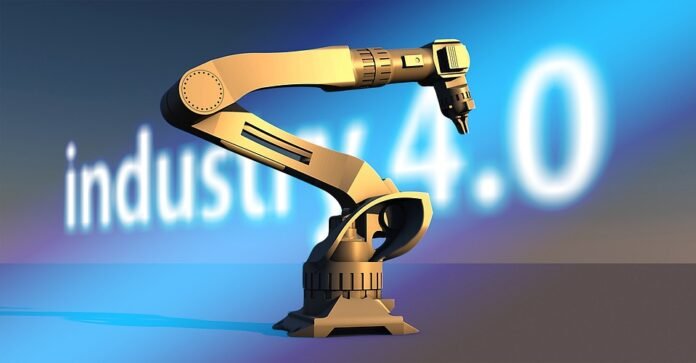Of course. Here is an article on the topic of robots in the workplace.
Will a Robot Do Your Job Better Than You? The Inevitable Rise of AI in the Workplace
It’s a question that hums beneath the surface of our modern economy, sometimes as a quiet worry and other times as a headline-grabbing panic: Is a machine coming for my job?
For decades, this fear was confined to the assembly line, where mechanical arms replaced human hands in repetitive, physical tasks. But today, the “robot” in question is more likely to be a sophisticated algorithm, an AI-powered software that can write code, analyze medical scans, or craft a marketing plan. The threat is no longer just to blue-collar jobs but to white-collar, creative, and analytical professions.
So, let’s ask the question directly: Will a robot—or more accurately, an AI—do your job better than you? The answer is a complex and resounding yes, and no.
The Case for the Machine: Where Robots Reign Supreme
To understand the future of work, we must first be honest about where humans fall short. AI and robotics are being designed to overcome our inherent limitations. They excel in areas governed by logic, data, and repetition.
- Speed and Endurance: An AI can analyze millions of data points, run thousands of simulations, or sort through a decade of legal documents in the time it takes you to drink your morning coffee. It doesn’t need breaks, vacations, or sleep. For tasks requiring sheer computational horsepower and 24/7 availability, there is no contest.
- Precision and Accuracy: A human accountant might make a rounding error after a long day. A surgical robot, guided by a surgeon, can make incisions with a steadiness and precision that even the most skilled human hand cannot replicate. In tasks where the margin for error is zero, machines offer unparalleled reliability.
- Data-Driven Objectivity: Humans are creatures of bias, intuition, and emotion. While these can be strengths, they can also cloud judgment. An AI analyzing résumés (if programmed correctly) won’t be swayed by a candidate’s name or alma mater. A financial algorithm won’t panic-sell during a market dip based on fear. It follows the data, coldly and logically.
If your job consists primarily of repetitive, rule-based tasks—data entry, basic report generation, quality control checks—then the answer to the title question is likely “yes.” A machine will perform those specific functions faster, cheaper, and more accurately than you can.
The Human Advantage: Where We Still Can’t Be Beaten
But a “job” is rarely just a single, repetitive task. It’s a dynamic collection of responsibilities that require a uniquely human touch. This is where we retain our edge.
- Emotional Intelligence and Empathy: Can an AI comfort a frightened patient, inspire a demoralized team, or build a trusting, long-term relationship with a client? It can simulate empathy, but it cannot feel it. The nurse who holds a hand, the manager who listens, and the salesperson who connects on a personal level are performing acts of emotional labor that are, for now, irreplaceable.
- Creativity and Innovation: AI can generate art, music, and text by learning from existing patterns. This is a powerful tool. But true innovation—the kind that creates an entirely new category, disrupts an industry, or solves a problem in a way no one has ever thought of before—stems from human curiosity, experience, and the chaotic spark of a new idea.
- Complex Problem-Solving and Critical Thinking: Most real-world problems are messy and lack complete data. A business leader navigating a PR crisis, a detective solving a complex case, or a plumber figuring out a unique piping issue in an old house all rely on context, intuition, and adaptability. They deal with ambiguity, something algorithms struggle with.
- Ethics and Morality: Who do you want deciding a complex legal case or making a life-or-death ethical choice? A judge or a therapist must weigh nuanced moral arguments and understand the human consequences of their decisions. This requires a moral framework that machines simply do not possess.
The Future isn’t Replacement, It’s Collaboration
The most likely reality isn’t a future where robots have replaced us, but one where they work alongside us. The conversation is shifting from “Man vs. Machine” to “Man + Machine.”
Think of the “cobot”—a collaborative robot.
- A radiologist now works with an AI that flags potential tumors on an MRI scan with superhuman accuracy. The doctor then uses their medical expertise and patient knowledge to make the final diagnosis and treatment plan. The AI handles the data; the human provides the wisdom.
- A marketing professional uses an AI to generate dozens of ad copy variations and analyze performance data in real-time. The marketer then uses their creative judgment and brand strategy to select the best options and guide the overall campaign. The AI provides the options; the human provides the direction.
- An architect uses AI-powered software to run thousands of structural and environmental simulations to optimize a building’s design. The architect then uses their aesthetic vision and understanding of human space to create a building that is not just efficient, but beautiful and functional for people.
So, will a robot do your job better? It will almost certainly do parts of your job better. The key to thriving in the coming decades is not to compete with AI on its terms—speed, data processing, and repetition. That is a losing battle.
Instead, the challenge is to double down on our humanity. The future belongs to those who can ask the right questions, think critically, collaborate effectively, and bring creativity and empathy to their work. Your new job description might just be to manage the robots, to interpret their outputs, and to provide the human insight they will always lack.
The robot is a powerful tool, perhaps the most powerful ever invented. And like any tool, its value is determined by the human who wields it.

